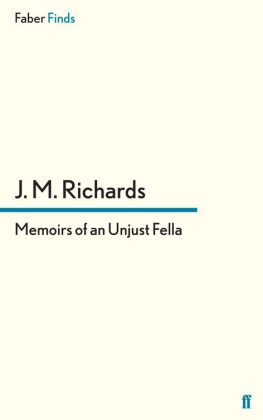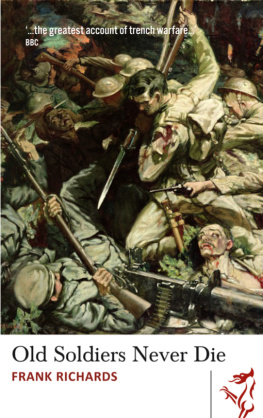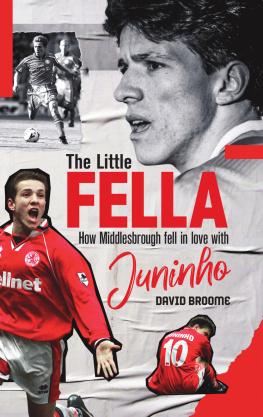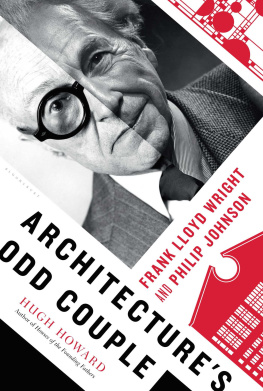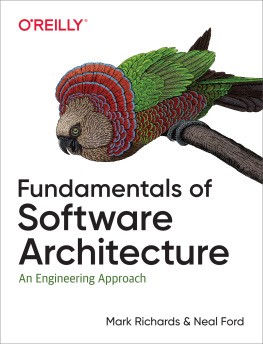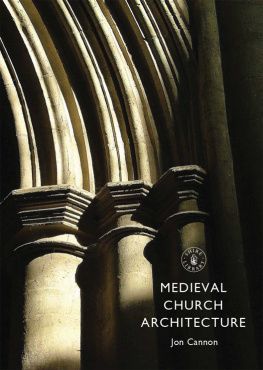I HAVE NEVER kept a diary; so what follows is told from memory. But I have checked facts where I could and have included stories and descriptions of events only when I was fairly sure I could remember them correctly. I have been able to refresh my memory in the case of some of the self-contained episodes which form the basis of several of my chapters. For example the beginning of my architectural career recounted in Chapter 5, and the excursions abroad described in Chapters 20, 23 and 25 were the subjects of broadcast talks I have given at various times, printed afterwards in the Listener. Chapter 10 is based on a memoir of the late Eric Ravilious which I wrote for the Royal College of Art in 1971 as an introduction to a volume of his engravings. Only in the case of the central episode of Chapter 7, my incarceration at San Diego, have I had access to an account written down at the time.
The title I have given to this book is taken from an anonymous poem, printed on the title-page, which reflects my awareness that during a full and varied life I have been granted opportunities, and had doors opened for me, as a result of fortunate accidents of circumstance which I did not contrive and for which I can take no credit. I have in this sense been sheltered and privileged in a world where many are not, and for that I am grateful. The poem was included in an anthology of humorous verse compiled by E. V. Knox in 1931 and published by Chatto and Windus. I came across it in the same year and have been conscious of its wisdom ever since.
J.M.R.
M Y GRANDFATHER , the Rev. Louis Richards, DD , was a Protestant clergyman in what is now Northern Ireland, but he came from the South (the Richardses were a County Wexford family). When I was a child he was rector of Dungannon. He had previously been rector of Enniskillen. Dungannon was at the very centre of Protestant fanaticism, but whether my grandfather was appointed to a living there because he was already as bigoted as the religious atmosphere of that town demanded, or whether he became so as a result of the prevailing atmosphere, I was too young to ask myself.
No doubt he was a conscientious and high-principled clergyman, but in politics as well as religion he was as narrow as you can imagine; for in Ireland especially Northern Ireland politics and religion are one. He was also a typical Victorian disciplinarian, believing that children should be indoctrinated with the right attitudes at the earliest possible age. I cannot have been more than four when he made me learn a Protestant toast known as the Glorious Pious, which he declared was the proper beginning to every Protestant occasion in which he and his friends took part. Whenever I was brought by my parents from our home in London to visit the rectory at Dungannon, no sooner had we arrived at the end of a tiring journey by rail and sea than I was summoned to my grandfathers study: Now my boy, let me hear you recite the Glorious Pious. Terrifying would be his wrath if I even faltered.
It was the first thing I ever learnt by heart, and I can remember it to this day: Heres to the glorious pious and immortal memory of King William Prince of Orange who saved us from Rome Romery Popes Popery brass money and wooden shoes. Whoever will not drink this toast may he be rammed damned and double jammed down the great gun of Athlone and thence shot into the air to make sparables for the shoes of Orangemen on the twelfth of July in the morning. I never dared to inquire what sparables were.
Even a child could not inhabit Dungannon without becoming aware of religious antagonisms. When I say this I must take care that I am not transposing into personal memories impressions gained later, especially from my parents conversation. However, I clearly remember walking along the somewhat drab main shopping street of Dungannon with my Aunt Mary my fathers elder sister and, in spite of my ignorance of the world at the age of five or six, being startled to see her, a correct and conventional middle-aged lady, spit into the gutter. I was given to understand that this was the customary reaction to seeing a Catholic priest passing along the opposite pavement.
So absolute was the social, as well as the doctrinal, separation between the two religions that my grandmother would never have considered dealing with any but a Protestant baker or grocer. But it was not only the clergy who were bigoted; so were their parishioners who did not allow the clergy to be anything else. My parents used to recall an occasion when my grandfathers clerk, who assisted in the conduct of the services, was a little late one Sunday arriving at the church or perhaps only a little slow putting on his surplice. Whichever it was, my grandfather, not wanting to keep the congregation waiting, entered the church from the vestry a few paces ahead of his clerk, when usually they entered side by side. The consequence was a letter of complaint to the bishop that my grandfather was introducing processions into the service, so keenly were the parishioners on the look-out for anything suggestive of Popish practices.
These are only early memories, not at all typical of my childhood background, which was on the whole far more relaxed and tolerant, even though my father had inherited some of his parents prejudices, especially an antipathy to the Roman Catholic Church. This however he always expressed in a half-joking manner, as though to allow others to assume, if they wished, that he did not mean it seriously. In any case, my visits to Ireland stopped when my grandparents died. That must have been in 1914 or 1915, when I was seven or eight. (I was born in August 1907.) I was, in fact, brought up wholly as an English child. My father, too, became in effect an Englishman. Although he had been born in Ireland and came of an Anglo-Irish family, he was sent to an English public school, Sherborne , and went on to Trinity College, Cambridge. There he read Law and, after qualifying as a solicitor, practised in London. Ireland nevertheless coloured my childhood because my father was very family-conscious and had an enormous number of relations, most of whom lived in Ireland though only a few in the North. Relations and their doings played a large part in my parents conversation.
It has been a puzzle to many of my friends, who assume from my name that I am originally Welsh, that I am Irish on my fathers side Anglo-Irish, of course, not aboriginal Celtic Irish. I know of no Welsh ancestors. The first ancestor I know about was, in fact, English, from Wiltshire: a John Richards, who is recorded as having married the daughter of a Richard Fox, who became Bishop of Exeter in 1487 and later Bishop of Winchester. This John Richardss grandson, called (like many of his descendants) Solomon Richards, was the first of the Irish Richardses. He was a Colonel in Cromwells army for the invasion of Ireland something I discovered I ought not to be proud of only when I learnt, as a schoolboy, about this armys brutal behaviour to the local population. He was a Commissioner for Ireland under Cromwell and was appointed Governor of Wexford.
At the same time he was granted 3,000 acres of land in County Wexford looted, I suppose, from some defeated Irish chieftain including the estate of Solsborough. This grant was confirmed under the Act of Settlement of Charles II . A century later, the Richardses acquired still more land in County Wexford. One of Solomon Richardss grandsons another Solomon, born in 1758 became a celebrated surgeon in Dublin and, having made money, bought a second estate, because Solsborough had gone to his fathers elder brother. This estate was called Ardamine, and became the home of my particular branch of the Irish Richardses. This Solomon Richards had five children. The second, Edward, born in 1797, became a clergyman. He was Chancellor of the diocese of Dromore in Northern Ireland and married Emily, the daughter of James Saurin, the Bishop of Dromore a celebrated scholar and preacher of Huguenot extraction. Edward and Emily Richards had seven children, of whom the third, called Louis, was my grandfather the rector of Dungannon with whom this chapter begins. My father, also called Louis, and Saurin after his grandmother, was the eldest son.

